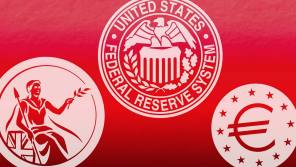

But there is no prospect of a similar dramatic about-face on the surprise announcement that transfers to qualifying recognised overseas pension schemes (Qrops) within the European Economic Area for individuals not resident in the EEA are now subject to a 25 per cent overseas tax charge.
The speed of the changes with the measure coming into effect from midnight on Budget day might have been appropriate for a change in petrol duty or the price of a pint, but it was definitely not appropriate for pension funds.
It was entirely predictable that the initial reaction from the pension industry was panic in some quarters, with real concern about the future of Qrops.
Shock announcements can do a great deal of harm. They can leave advisers – and consumers – high and dry, lacking the insights they need to provide recommendations. For those of us championing the absolute necessity for a transparent pensions industry, this was a cause of concern.
The government is arguing it is making the changes to encourage fairness in the tax system and claims that a minority of the 10,000 to 20,000 transfers to Qrops each year will be subjected to the new rules.
There must be some doubt that it will happen as forecast. The British expatriate community is more mobile than ever. Just as a job for life is now a distant memory for most workers, a single country of residence outside your home country is a rarity for expats.
Even those who today think they will be working in just one country may change their minds later down the line as tempting career opportunities present themselves in new jurisdictions.
The Treasury expects the changes will net it £60m a year by 2021/22. However, I question those calculations because it seems incomprehensible that consumers will structure any transfer that would lead to this charge.
The changes are already in place and providers need to ensure advisers are crystal clear about the way ahead.
The first point of note is to emphasise that if the Qrops is in the EEA and the member is resident in an EEA country with no intent to relocate, then nothing has changed.
This also applies for UK transfers outside the EEA if the Qrops and member are in the same country or territory and additional exclusions exist if the Qrops is an employer-sponsored occupational scheme, overseas public service pension scheme or a pension scheme established by an international organisation and the member is an employee.
The key focus is the impact on the three main Qrops jurisdictions:
* Malta: Unaffected for EEA resident members. Where the member is outside the EEA, a transfer to a Malta Qrops will incur the 25 per cent charge.
* Gibraltar: Unaffected for EEA resident members. Where the member is outside the EEA, similarly the transfer will incur the 25 per cent charge.
* Isle of Man: Not part of the EEA. No charge as long as the member is resident in the Isle of Man. A 25 per cent charge will be applicable on transfers for individuals’ resident elsewhere.
Advisers should be wary of the following:
* The draft statutory instrument issued alongside the draft finance bill in December 2016 imposes a need for overseas schemes and/or providers to be regulated. It is envisaged that this will take effect from 6th April 2017. Advisers should check that Qrops providers meet this provision.
* All Qrops, if they wish to remain a Qrops, need to provide HMRC with an additional undertaking by 13 April to operate the overseas transfer charge regime, with an updated list to be issued after 14 April 2017. It will be interesting to see the composition of this list after this date to see which schemes intend to delist, and effectively close for new business. Advisers should check this with their pension providers to avoid the risk of unauthorised payment charges.
* Even a transfer to a Qrops for an EEA resident, while not affected initially, would still be subject to the 25 per cent charge, if the member's circumstances change and they become resident outside the EEA within five full tax years.
However, advisers should also note that the 25 per cent charge paid at point of transfer to a Qrops can be reclaimed where members subsequently relocate into the EEA or country where the Qrops is located within five full tax years, .
More than ever before, advisers should carefully consider future retirement plans, in terms of destination and timing. In addition, pensions transfers within the UK are unaffected.
What should advisers do now?
It is critical that advisers make sure that contact is made with the transferring schemes, all details are checked and confirmation obtained that all paperwork was in place and the transfer can proceed based on pre-9 March 2017 conditions.
If they have any doubt whatsoever, they should contact with their Qrops provider as soon as possible for a detailed briefing, which can be made relevant to their specific clients, and to ensure they continue to get a clear service.
What next?
The big unknown is the impact on EEA residents, post-Brexit. It is impossible to call, and much will depend on the nature of any trade deal between the UK and EEA/EU trading bloc.
Stewart Davies is group chief executive of Momentum Pensions
Key points
The 25 per cent tax charge on Qrops was announced in the Budget and came into effect immediately.
The government said the changes were designed to encourage fairness in the tax system.
The key focus is on Malta, Gibraltar and Isle of Man.



